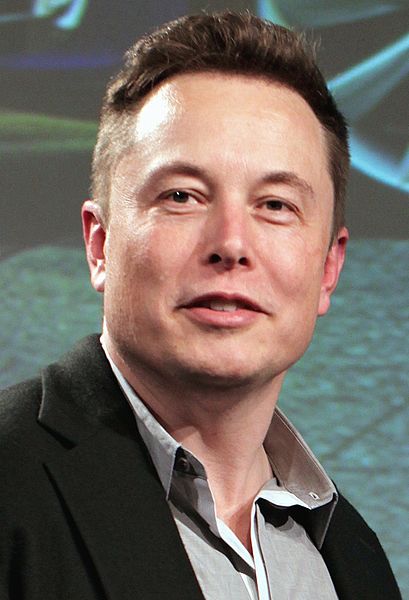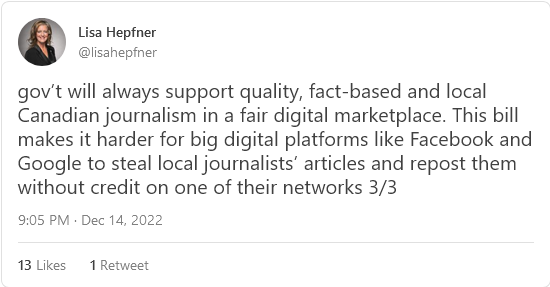BBC Comedy Greats
Published 26 Jul 2021Bernard (Derek Fowlds) walks Jim Hacker (Paul Eddington) through the red-tape of signing his Christmas cards, but Jim Hacker is more concerned with worrying plans from Brussels to rename the British sausage.
(more…)
December 22, 2022
The Emulsified High-Fat Offal Tube | Yes, Minister: 1984 Christmas Special | BBC Comedy Greats
December 21, 2022
The rise of David Bowie
In Quillette, David Cohen outlines the career of David Bowie:
With impeccable timing, the thin white stork had dropped David Robert Jones out of London’s skies nearly three-score-and-ten years earlier. The suburban Bromley Boomer fell to Earth on January 8th, 1947, and landed smack in the middle of the bulge years, a wonderfully fertile period for anyone looking to forge a career in recorded music. His first instrument was the saxophone, which he was blowing on by the age of 14. Within a few years, the transistor radio would be ubiquitous, young people would be awash with disposable cash to buy records, and the mass adoption of international air travel would open up new vistas for fans and artists alike. Could any moment have been better suited to a rock-star-in-waiting?
But he also came of age as the youngest child in a doomy household. Three of his maternal aunts suffered from acute mental health issues — one of whom was eventually lobotomized — and the family was riven with more dark secrets than the Tolstoy home. His schizophrenic step-brother, Terry, would spend much of his adult life in psychiatric care. His beloved father dropped dead when Bowie was just 22, while his mother — a children’s home publicist with whom he was emphatically not close — lived on. “Everyone says, ‘Oh yes, my family is quite mad,'” Bowie later recalled. “Mine really is.”
The greatest dream of the era in which Bowie grew up — the promise of putting Man on the Moon — became one of his first signature artistic nightmares. Space Oddity, the most famous track from his eponymous second album, conjured one such scenario, and provided him with his first real hit after the false start of his debut. The earlier album had its moments, but it left unresolved the question of whether the singer wanted to be a fey-voiced Anthony Newley or a strange young man called Dylan.
By the time he recorded his second album — and, especially, his third — Bowie had decided he would be a bit of both. The cover art for 1970’s The Man Who Sold the World presented him elegantly reclining on a chaise longue in a dress. He smoked copious amounts of hash and assembled a crack band for 10 days of whirling Moog synthesizers and hard rock guitars. The experience was so enjoyable and creatively rewarding that bassist Trevor Bolder, guitarist Mick Ronson, and drummer Mick Woodmansey stayed on. The tracks were laid down at a London residence called Haddon Hall, in Beckenham, and it is here that he would write and rehearse the material for his next three albums that would send his career stratospheric.
Commercially, the sex, drugs, and frock ‘n’ roll of The Man Who Sold the World didn’t find much of an audience. It was too heavy, perhaps, for the folk followers he had accrued with its acoustic predecessor. And too gay for rock fans certainly, the singer’s voracious heterosexuality notwithstanding. He followed it a year later with Hunky Dory, which is generally thought to be the record on which the Bowie alchemy first cohered into something truly new. It was also the curtain-raiser for what’s generally regarded as his classic period, and it provided him with his first American hit, “Changes”. More critically, it saw him discard the claustrophobic sound of The Man Who Sold the World for textured melodies, creamy arrangements, seat-of-the-pants lyrics, and further cameos from extraterrestrials.
On Hunky Dory, Bowie also turned in tribute tracks about Lou Reed, Andy Warhol, and Bob Dylan. Warhol hated the song Bowie had written about him. Reed would eventually smack Bowie about the head during an altercation at a London restaurant in April 1979. And when Bowie finally met Dylan, he later told Playboy, they “didn’t have a lot to talk about. We’re not great friends. Actually, I think he hates me.” Small wonder that he preferred the company of spacemen. The razzle-dazzle of “Oh! You Pretty Things” conjures hordes of them. As does “Life on Mars?” which features a chord progression nicked from Frank Sinatra’s “My Way”. The album closes with “The Bewlay Brothers”, in which the 24-year-old singer paid a tribute of sorts to his own step-brother, Terry.
But it was the release of The Rise and Fall of Ziggy Stardust and the Spiders from Mars in 1972 that made David Bowie a superstar. Picking the space songs out of that record is difficult because, by that point, almost everything Bowie was writing seemed to have an explicitly alien streak. During his appearance on Top of the Pops, he draped an arm across Ronson’s shoulders, and glowered out at a world that was about to repay the attention. In the wake of the album’s release, he returned to the United States a sensation (although the stormy flight en route only confirmed his fear of flying).
A generation on, Ziggy Stardust still routinely appears at or near the top of critics’ lists of the all-time greatest rock albums. It is strange to recall then, that in 1972, while it picked up its share of warm reviews, the album was by no means universally well received (the work of a “competent plagiarist”, sniffed Sounds). Some critics never got it. “I always thought all that Ziggy Stardust homo-from-Aldebaran business was a crock of shit,” wrote Lester Bangs in Creem four years later, “especially coming from a guy who wouldn’t even get in a goddam airplane.”
December 20, 2022
QotD: Myrna Loy
In the first couple of pages of her 1987 memoir Being and Becoming, Myrna Loy gets down to business. Talking about the sex lives of Hollywood stars such as herself, she tells us that “any business involving so many beautiful and high-strung people working together on such intense and intimate terms is bound to breed an easy promiscuity. God knows I’ve fended off my share of amorous men – attractive, desirable men.”
She goes on to provide a short list: John Barrymore (“just because he felt like a little redhead now and then didn’t incline me to join the club …”), Clark Gable (she shoved him off her back porch one night after he made a pass “and, boy, did he punish me for that!”), Spencer Tracy (“he chased me for years, then sulked adorably when I married someone else …”) and Leslie Howard (despite both of them being married he “wanted to whisk me off to the South Seas, and, believe me, that was tempting …”).
“These days you’re made to feel dull and defensive if you weren’t the Whore of Babylon,” Loy writes. “Well, succumbing isn’t the only interesting aspect of a relationship.”
It’s no surprise that a woman who understands this much was such a natural in screwball comedies, where succumbing is usually held at bay until the last shot, the better to draw out the difficulties, obstacles and improbabilities set up like an obstacle course along the way.
Of the over 120 films she made, most of the first half of her career – largely bit parts, vamps and “exotics” – is forgotten, her reputation based on the fourteen she made with William Powell (six of which were Thin Man pictures), along with titles like The Best Years of Our Lives, The Bachelor and the Bobby Soxer, Mr. Blandings Builds His Dream House and Cheaper by the Dozen.
If she had a type onscreen – and Loy tried hard to avoid becoming a type – she would become Nora Charles, the paragon of wives: supportive but not obsequious, the equal of any spouse, ready with a wisecrack and a bit of fun, and always beautifully turned out. Quite a stretch, she’d admit, for a woman divorced four times, childless and openly dismissive of her domestic skills.
Rick McGinnis, “Do You Take This Woman? Myrna Loy and Third Finger, Left Hand“, Steyn Online, 2022-09-17.
December 19, 2022
“[T]he major promoter of the ‘Canada is broken’ thesis over the past few years has been … Justin Trudeau”
In the free-to-cheapskates exerpt from this week’s Dispatch from The Line, they set up the possible lines of attack for the next federal election:
What was more interesting to us this week were the comments made by Prime Minister Justin Trudeau to thousands of Liberals at a large in-person Christmas party. As one does at any good Christmas party, the PM took the chance to, uh, savage his rivals. To wit: “Canada is not broken … Mr. Poilievre might choose to undermine our democracy by amplifying conspiracy theories. He might decide to run away from journalists when they ask him tough questions. That’s how he brands himself. That’s his choice. But, when he says that Canada is broken, that’s where we draw the line.” (Full video of the speech is available via CTV News).
The PM was responding, of course, to a recent line of attack favoured by the Conservatives: that Canada is broken, and we need the Conservatives to fix it.
There are three comments we’ll make in response to this.
The first is strictly an analysis: Trudeau is staking out some interesting rhetorical ground. We aren’t sure this will be the ground on which the next campaign is fought over — God only knows what’ll happen between now and whenever we are next headed to the polls. But if this is the subject of our next “ballot question”, well, that’s just fascinating. “Sunny Ways” vs. “Everything Is Broken and It’s Your Fault.”
How fun! Both men would be able to make an honest pitch for their case. As we’ve written before, the Liberals seem exhausted and spent. They’ve accumulated baggage since their first smiley-faced win back in 2015, and the country has been thoroughly battered by events since then. That suggests that Poilievre, who is at his best when on the attack, could mop the floor with Trudeau.
That said, we don’t take that outcome as a given. First, Trudeau is a damned good politician, better than the Conservatives still give him credit for, and though we are starting to wonder if Trudeau is past the point of no return, we will never count him out. We also think that if the Conservatives make “Things are terrible” the centrepiece of their next campaign, may find that Canadians recoil. Canadian pride is a fragile, brittle thing, and while many of us may feel like things are bad, it’s not clear to us that Poilievre saying so won’t rub a lot of voters the wrong way.
But we honestly don’t know. That’s why it’s fascinating.
The second point is a bit of a reminder: It is worth noting that the major promoter of the “Canada is broken” thesis over the past few years has been … Justin Trudeau. We don’t think we — your Line editors, the media, Canadians in general — should let him take such casual re-occupation of the “Sunny Ways” position, since he’s spent the last five years absolutely dumping on Canada, its history (genocide), its symbols (the flag), and its institutions (the military, amongst others). No one has done more to proclaim Canada broken than Justin Trudeau. Is he now claiming that he’s fixed all the problems he’s spent the last half decade making political hay over?
We mean … the guy won’t even fix his house.
The third point is our own view: of course Canada is broken. And Trudeau has done nothing to fix it.
Now, we have to define our terms here. “Broken” isn’t “destroyed”. We don’t think we’re descending into some kind of post-apocalyptic wasteland. It remains undeniably true that Canada is, in global terms, a nice place to live. Safe. Lots of food. No one is firing missiles at us. Sweet! But, like, gosh, folks. Look around. If the PM really wants to assert that Canada isn’t broken, we’ll agree insofar as it’s not so broken that the average person fears starvation and violent death. Sure. But that average person also probably can’t get a passport, or a family doctor, or timely care in an emergency room, or a house in a big city where the jobs are clustering, or Tylenol for their kids.
December 18, 2022
December 17, 2022
Canada’s consciously anemic foreign and military policies
In The Line, Matt Gurney explains why Canada consistently fails to “punch above their weight” in foreign and military matters and that it’s not at all accidental:
Canadian politicians have an inputs problem. Maybe that’s actually the wrong way to describe it — the problem is with the outputs. But it’s the inputs they love talking about.
If that all sounds a little vague, maybe this sounds familiar: “Hey there, citizen. Alarmed about Troubling Issue X? Well, don’t worry. We’re pledging $300 million over the next six years to Troubling Issue X. Oh, and Annoying Irritant Y? We’re announcing a task force to report back on that.”
Does Troubling Issue X get solved? Does Annoying Irritant Y get less annoying and irritating? Eh. We probably don’t collect enough stats to even know. The purpose of the announcement isn’t to solve the problem. It’s to announce something and hope people stop paying attention.
Canadian politicians — especially the current federal government — are notorious for announcing the same “new thing” in as many ways and in as many different contexts as they can. They get several hundred dollars of positive press coverage for every actual dollar spent on whatever the announced spending is supposed to be devoted toward. If they can recycle announcements from months past into a new set of announcements, you’re pretty much guaranteed they’ll do it. Announcing spending is, one must assume, what gets people to cast their votes for the party announcing the spending.
A lot of what looks like policy failure in Canadian foreign and military affairs only looks like a failure when you forget that accomplishing something wasn’t the point. Being photographed and videotaped saying you’ll accomplish something was the point. And the announcement itself accomplishes that!
This was true even before the Trudeau government started handing out bushel baskets of money to various Canadian newspapers, TV networks, magazines, and other legacy media entities. What was once merely praise is now bought sychophancy from the (literally) paid media.
On the military side of things, the Canadian Armed Forces are an organization the government grudgingly funds, but only enough to look good for the self-same media:
It’s not that Canada accomplishes nothing on the world stage. We accomplish things. Sometimes we even play an outsized role — Canada did, for instance, perform well and above expectations in Kandahar. The odd exception aside, though, when it comes to foreign policy generally and especially with defence policy, successive Canadian governments have set a very clear target: we will do, technically, more than nothing. We won’t often do much more than that. But we’ll do enough to not get kicked out of the club of allied nations.
Why do we want to be in the club? Not because we feel any sense of duty or obligation to lead and take on any real burden. But because being in the club makes us safer, and it would, after all, be embarrassing to get kicked out.
It’s important to remember that Canada is, by any standard, a rich country. We could be an actual force for good and stability on the world stage if we wanted to. We could build a bigger fleet and patrol more places, more often — we’d be welcome! We could have a bigger army and lead more peacekeeping missions, or contribute more to NATO. A bigger air force, likewise, could contribute more to our allies, especially in Europe in these unsettled times. In a parallel universe where we did these things, we’d then be able to say with a straight face that the purpose of Canada’s navy was contributing to the safety and security of the seas, the purpose of our army was to assist allies and provide peacekeepers to help end international crises, and the purpose of our air force was to project power and bring support to threatened allies.
In the world we actually live in, though, the purpose of the navy is to technically have a navy that technically does things, the purpose of the army is to technically have an army that technically does things, and the purpose of the air force … you see where this is going, right?
Our navy does things! It shows up places, and patrols areas. But only as much as necessary to technically tick that box. The army is in much the same condition; with a growing number of domestic commitments sapping its strength and budget, even its ability to assist with disasters at home is largely maxed out, but we send a few hundred soldiers here and there, thereby allowing ourselves to proclaim that we’ve … sent soldiers somewhere. The air force, as was just reported this week, can’t even really do even that much this year. The exhausted force is skipping the very modest — a half-dozen fighter jets — annual mission to Europe. The air force is just too burnt out to sustain even that tiny mission.
This is a big and growing problem. Canada, again, is rich enough to make a difference in global security affairs, if we chose to make different choices with how we spend our money. We have made the opposite choice. We field just enough of a military to be able to make just enough difference to avoid being accused of being total deadbeats, and no more.
Can it fight? Eh, maybe a bit. Can it make a difference? Depends how you define “difference”, I guess. Does it make the world and our allies safer? In a way? Can it keep Canadians safe at home? Sort of.
This isn’t a failure of our policy. This is our policy. We show up with as little as possible for as brief a time as possible, but gosh, do we ever talk about the showing up.
December 16, 2022
The Online News [Shakedown] Act passes the House of Commons
Michael Geist summarizes the farcical progress of Justin Trudeau’s legalized theft from the “tech giants”:
Later today, the House of Commons will vote to approve Bill C-18, the Online News Act, sending it to the Senate just prior to breaking for the holidays. While Canadian Heritage Minister Pablo Rodriguez and media lobbyists will no doubt celebrate the milestone, it should not go unremarked that the legislative process for this bill has been an utter embarrassment with an already bad bill made far worse. The government cut off debate at second reading, actively excluded dozens of potential witnesses, expanded the bill to hundreds of broadcasters that may not even produce news, denigrated online news services as “not real news”, and shrugged off violations of international copyright law. All the while, it acknowledged that mandated payments for links are the foundation of the bill with officials stating that individual Facebook posts accompanied by a link to a news story would be caught by the law. As for the purported financial benefits, the government’s own estimates are less than half those of the Parliamentary Budget Officer, who also concluded that more than 75% of the revenues will go to broadcasters such as Bell, Rogers, and the CBC. The end result is a bill that will undermine competition and pose a threat to freedom of expression, while potentially leading Facebook to block news sharing in Canada and Google to cancel dozens of existing agreements with Canadian news outlets.
As I’ve chronicled for months, Bill C-18 is the product of an intense lobbying campaign from some of Canada’s largest media companies. While the Globe and Mail broke from the pack at the last minute, years of one-sided editorials — even devoting full front pages to the issue — had its effect. Indeed, Canadian newspapers would be exhibit #1 for how government intervention in the media space has a direct impact on an independent press. From the moment of its introduction, the consequences were immediately obvious as payments for links serves as the foundation for a law that treats “facilitating access to news” as compensable. Canadians can be forgiven for thinking the bill is about compensating for reproduction of news stories. It is not, since the platforms don’t do that. Instead, it is about requiring payments for links, indexing or otherwise directing traffic to the news organizations who are often the source of the link itself. In most circumstances, recipients pay for the benefits that come from referral traffic. With Bill C-18, the entities providing the referrals pay for doing so.
Further, the bill is about far more than struggling Canadian newspapers as it expands eligibility into broadcasters such as the CBC, foreign news outlets such as the New York Times, and hundreds of broadcasters licensed by the CRTC that are not even required to produce news. The end goal is negotiated payments for links, backed by the threat of a one-sided arbitration process overseen by the CRTC in which the arbitration panel can simply reject offers if it believes it fails to meet the government’s policy objectives. That isn’t a commercial deal, it is a shakedown.
I’ve been operating on the assumption that the government is betting that the big internet companies won’t do the obvious and ban linking to any Canadian media outlet on their respective platforms, but the feds don’t have a great track record of predictions in recent years …
In a later post, Michael Geist illustrated the literal misinformation that was pushed by government MPs during Bill C-18’s path through to final reading by quoting some of Liberal MP Lisa Hepfner’s contributions:
Last month, Liberal MP Lisa Hepfner shocked Canadian online news outlets by stating that “they’re not news. They’re not gathering news. They’re publishing opinion only.” The comments sparked instant criticism from news outlets across the country, leading Hepfner to issue a quick apology. In the aftermath of the comments, Hepfner said nothing for weeks at Heritage committee studying Bill C-18. That bill passed third reading yesterday – I posted on the embarrassing legislative review – and Hepfner was back at it. Rather than criticizing online news outlets, this time she targeted the Internet platforms, saying the bill would make it “harder for big digital platforms like Facebook and Google to steal local journalists’ articles and repost them without credit.”
[…]
Hepfner’s comment not only provide a troubling example of an MP engaging in misinformation about links who has effectively labelled her own Facebook posts as theft, but strikes at the heart of the problem with Bill C-18. As government officials have acknowledged, the entire foundation of the bill is based on paying for links. In fact, when a proposal to remove links from the bill was raised at committee, government MPs described the change as a loophole and voted against it. In the case of the CBC links, the government confirmed that Hepfner could write about the availability of children’s medications (ie. “Great news! CBC reports a million bottles of pain medication are on the way”) but once she added a link to provide a source for the claim, Bill C-18 is triggered.
These examples highlight the absurdity of a law that treats links as compensable and MPs who equate those links to theft. To be clear, there is nothing wrong with Hepfner or anyone else providing a link to a story on greater availability of children’s medicine. In fact, the CBC story has effectively already been paid for by the public and should be shared widely without the government creating barriers to sharing that information. What is wrong that is ill-informed MPs have voted for Bill C-18, creating a framework in which the government is imposing a mandatory payment scheme for some platforms for hosting links. The bill is now headed to the Senate which will hopefully make the necessary amendments to set Hepfner’s mind at ease that her own Facebook posts do not make her an accomplice to theft.
December 15, 2022
QotD: From The Stepford Wives to The Handmaid’s Tale
Hey, did you know The Stepford Wives was published 50 years ago today? Salon does:
Why feminist horror novel The Stepford Wives is still relevant, 50 years on
But before we get to the fisking (I’m running on fumes, y’all; the end of the summer is always the worst time for me), let’s pause for a moment to consider the TV show. You’d think there’d be one, right? Either that, or this is stoyak — The Stepford Wives, coming fall 2022 to Disney Plus. But it doesn’t appear to be. I googled “stepford wives tv show” and got this, which looks trashy enough, but in no way related to the book or movie. There was a remake of the 1970s movie back in 2004, but it bombed.
Odd, no? You’d think that shit would be chick crack — all those Strongk Confidant Wahmens digging into conspiracies and Sticking it to the Man ™. At least, that’s what I thought back in 2004. I thought the casting was dodgy — Kidman was too old (and too glamorous; you really need a pretty-but-not-Hollywood-pretty type) and Matthew Broderick too nebbishy. Nonetheless, I thought the premise would be strong enough to overcome it — oh, you poor, put-upon ladies! But nope.
And then The Handmaid’s Tale happened, as my students would’ve written back in the days, and now I understand why I’m wrong. I should’ve seen it 20 years ago, but better late than never, right? Let’s all have a good laugh at the really obvious thing I missed back in 2004: Strongk, Confidant Wahmens are neither strong nor confident, nor do they want to be either. They want the thinnest veneer of the pretense of the fantasy of those things, delivered to them by a man who comes on like Chad Thundercock, but always somehow has the time to listen to her.
The Handmaid’s Tale, that’s the real chick crack. It’s highbrow bondage porn for the kind of tertiary-educated lady who thinks Fifty Shades of Gray is way too trashy to rent (except, you know, one Girls’ Night with a box of white whine, as a “guilty pleasure”). It gets her all fired up for busting balls at the next partners’ meeting down at the law firm. So empowering!
In The Stepford Wives, book and original movie, the housewives are replaced by robots. The author, Ira Levin, was a guy, and I bet you could tell that just from the one-sentence plot summary. Being replaced by a robot isn’t a “feminist” fear, it’s a male fear. The worry that you’re nothing but a wallet with a criminally underserved dick attached has been pervasive among men since probably the Puritans. It’s a neat trick on Levin’s part, racking up mucho feminist street cred by selling them the #1 male neurosis of the postwar world.
Severian, “SJWs Always Project”, Founding Questions, 2022-08-08.
December 14, 2022
Point – “Society cannot be so radically changed”
Counterpoint – Western culture since 1960:

“The Pill” by starbooze is licensed under CC BY-ND 2.0 .
The discussion of the causes of the problem is clear enough, whereas the discussion of possible solutions leaves much to be desired.
It seems to me rational to say that if the loss of family life was caused by the pill leading to abortion leading to the normalization of fornication, which in turn leads to ten percent of high-status males being sought by sixty percent of females, which in turn incentivizes fornication — because any woman unwilling to play the unpayed whore on the first date will be quickly replaced by one more willing — and if this in turn leads to a anti-child culture where the normal expectations and social support for mothers with children is lost, that therefore the solution is not to have maternal women try harder and made more sacrifices than the grandmothers were asked to make.
The solution is to normalize monogamy, which is impossible as long as contraception is not seen as the grave moral evil it is. Hence the solution, as soon as the culture atmosphere permits it, is to illegalize contraception.
After 1930 Lambeth Conference, the Anglicans spoke of contraception as permissible. The resolution, which passed 193 to 67 with 47 abstentions, is said to be the first instance where any responsible authority – not simply in Christendom but in any culture – had publicly supported, in any way at all, the use of artificial contraception.
Many other denominations followed suit and caved in on this issue.
The Roman Catholic Church teaches, and maintains, that contraception, in addition to being imprudent and damaging to the woman’s long-interests best interests, is a sin.
This is an ancient teaching which reaches back to the First Century. See, for example, the teaching manual of the Apostles, the Didache reads: “You shall not practice birth control, you shall not murder a child by abortion, nor kill what is begotten”. — Many scholars translate this as “practice sorcery” or “use potions” because the Greek word “pharmakon” (from which we get our word for pharmaceutical) sometimes has that meaning. However, it also means to use medicines, potions, or poisons, and the term was also used to refer to contraceptive measure, as it does here.
This is a core Christian teaching, and always has been.
The medical knowledge that chemical contraception, aka “the pill”, meddles with female hormones and induces depression and other mental disorders apparently is an insufficient motivator to reverse this poisonous addiction by the whole society.
Does returning to a society that respects women, follows wisdom, and disapproves of sex desecrated to mere recreation, and forbids our womenfolk to be degraded to harlots, seem impossible? Look around you. The sexual grooming of gradeschoolers and the surgical mutilation of their genitals due to sexual neurosis is a direct result of the sexual revolution, as is the abomination and absurdity of Orwellian gay marriage.
It may not be as impossible to convince the public that the alternative of happy marriages is so much less desirable than the hell of sexual self-mutilation, pornography, and perversion seen around us. It is not as if the Left will be satisfied with castration and mastectomy performed on children, once this is normalized. They will move on to the next thing, and after that, the next.
There is no final level. Hell is bottomless.
December 13, 2022
Unacceptable Views trailer
Unacceptable Views is a fantastic new documentary film about the Freedom Convoy protest. All 100 minutes of it can be watched for free on Rumble here. Sharp, marvelous footage. Great interviews with truckers who went to Ottawa.
One of my favourite scenes occurs around the 19:20-minute mark. A Polish immigrant talks about being arrested as a teenager in Poland during the 1981 freedom protests in that country. She looks into the camera and says:
I’m so proud that the young generation finally have balls and they stand up for the freedom …
The next gentleman who appears on screen, a Sikh, denies witnessing any misogyny, racism, anger, or violence in Ottawa. Instead, he describes the protest as “heaven on Earth, the energy was supreme”.
December 12, 2022
“The reason that Canada’s arts do not resonate with 95% of Canadians is that they are products of socialist realism’
Elizabeth Nickson on the parasitic world of official “Canadian culture” with its gatekeepers, subsidies, and luxury beliefs:
When I say society, I don’t mean the upper reaches of the wealthy. While we do have the very rich in Canada, they are rigorous in their hiddenness because we have the worst lefties on the continent and that is saying something. The safe thing for any wealthy family is give $ to socialists, bow and scrape to the harpies at the CBC and hope they don’t notice your bank balance. Anyway, these dreadful people arrived post WW2 with their hideous Frankfurt School ideas and just preyed on the simplest most innocent well-meaning good white people you could ever imagine, and literally ate, ravenous and braying all the while, the country’s potential.
So the scandal took place among them, or rather the world they created, which is basically a clutch of 150,000 grifters located between Ottawa, Toronto and Quebec City, whose only mission is to divest the government of as much public money as possible. This is particularly true of their defensive line which consists of the arts and journalism. Theirs is a world where no stone is left unsubsidized by taxes on the hidden rich, waitresses at truck stops in Kamloops and anyone who dares to make money unapproved by the CBC. They are, as a former editor swore to me, the gatekeepers. That was before her circulation collapsed by 65%., but no doubt she still believes it.
The arts and media in Canada are constructed entirely for the 5%, consumed by those who live the lush subsidized life — or those who want to — whether in government or in semi-independent corporations or businesses who require government help and “seed” money etc. (There are a hundred terms for the grift.)
Books, if you look at their sales, are tragic. There have been a handful of impressive films, despite the literal billions thrown at filmmakers over the past 20 years. Most of them are catastrophically depressing, the books make you want to cut out your heart with a grapefruit spoon. Painters paint, if you subtract all the hectoring from minor artists, from forced inclusion, some of them are very good. We can create good art. But not with our current curators.
The reason that Canada’s arts do not resonate with 95% of Canadians is that they are products of socialist realism. They describe humans and human life as they either believe it to have been (dark and in need of enlightened beings like themselves) or as they feel it must be in the future (filled with people expressing their oppression and being paid for it). It’s basically fantasy, and no one likes it, watches it, reads it.
The rest of Canada is a centre-right country, a gut-it-out-and-build-it-kind of place. I know that is the exact opposite of the propaganda, but Conservatives win a majority of the votes in every election, yet still only amount to 40%. We have five parties, and four of them are leftie — their platforms are all “more money for us” — but the big party, the one that receives about 30% of the vote is so crafty, so embedded in our vast vast bureaucracy that fixing the game is child’s play. Informed by their Frankfurt School gurus, they have been in power 100 years, with brief Conservative interludes.
We take in about half a million immigrants a year, and most of them are from desperate places. Vote harvesting in those neighborhoods is done by leaders in each immigrant community. These men and women are the strongest, most educated and frankly from the ones I’ve met, thuggish, and through them comes all access to government programs, housing and education. Therefore, when they collect your vote, you know for whom your vote is meant. The thing about immigrants though is that they were coming for the old Canada, not the new Commie police state.
But for now? Easy. No one investigates this. Why not? Our media is subsidized. ALL of it.
QotD: Oversensitivity is not constrained by the mere passage of time
This newspaper lost its editor-in-chief and guiding light to academia a few weeks ago, and we — you know, the talent! — are all still moping. Meanwhile, however, the job is open, and is being publicly advertised. The pay is pretty good, but if you are thinking of applying, you should really be conscious of what a top editor has to deal with these days. BBC News provided a good example on Wednesday, offering a brief account of a controversy at the Teesdale Mercury, a rural paper in princely, scenic County Durham. (The county called Durham in England, that is.)
It seems a reader of the Mercury ran across a brief news item about the suicide of a 16-year-old girl in its pages, and was horrified at the sensational, detailed nature of the report. The story described Dorothy Balchin as being “of a reserved and morbid disposition” and described the romantic disappointment — a beau’s emigration to Australia — that preceded her suicide. The newspaper noted that a photograph of her boyfriend was found immediately below her hanged body, and even printed the text of two notes she left. In other words, the news copy broke every rule that newspapers now normally observe in mentioning suicide.
But of course no one had thought of any of those rules in the year 1912.
Which is when the story had appeared in the Mercury.
Which didn’t stop some reader from complaining to the paper in the year 2019.
Colby Cosh, “Want a newspaper job? Dream of making films? Be careful what you wish for”, National Post, 2019-05-09.












